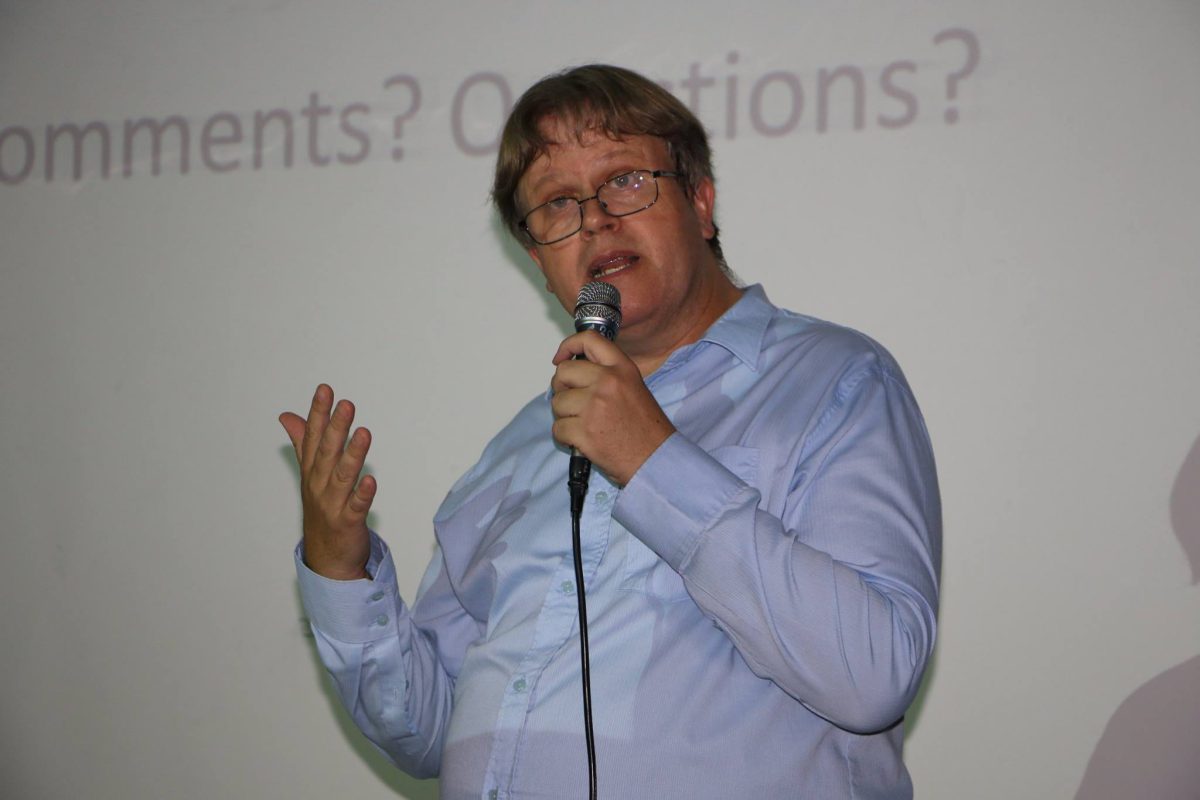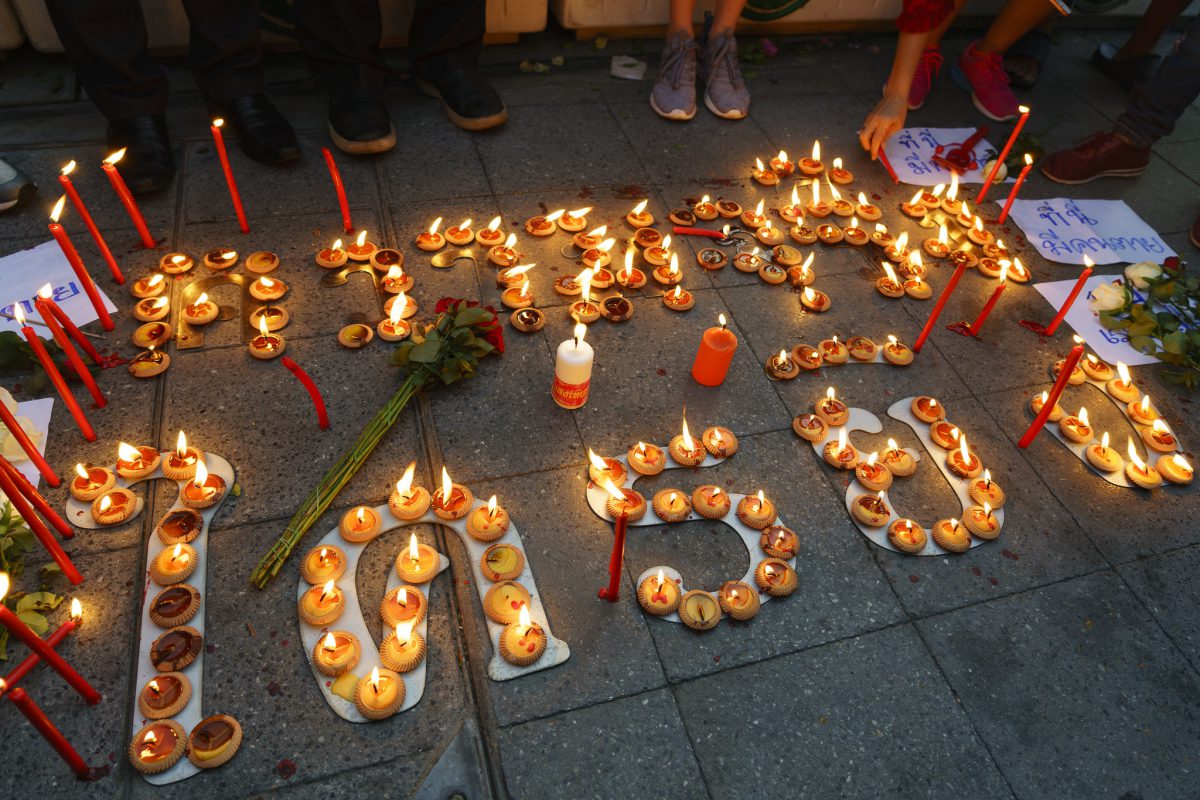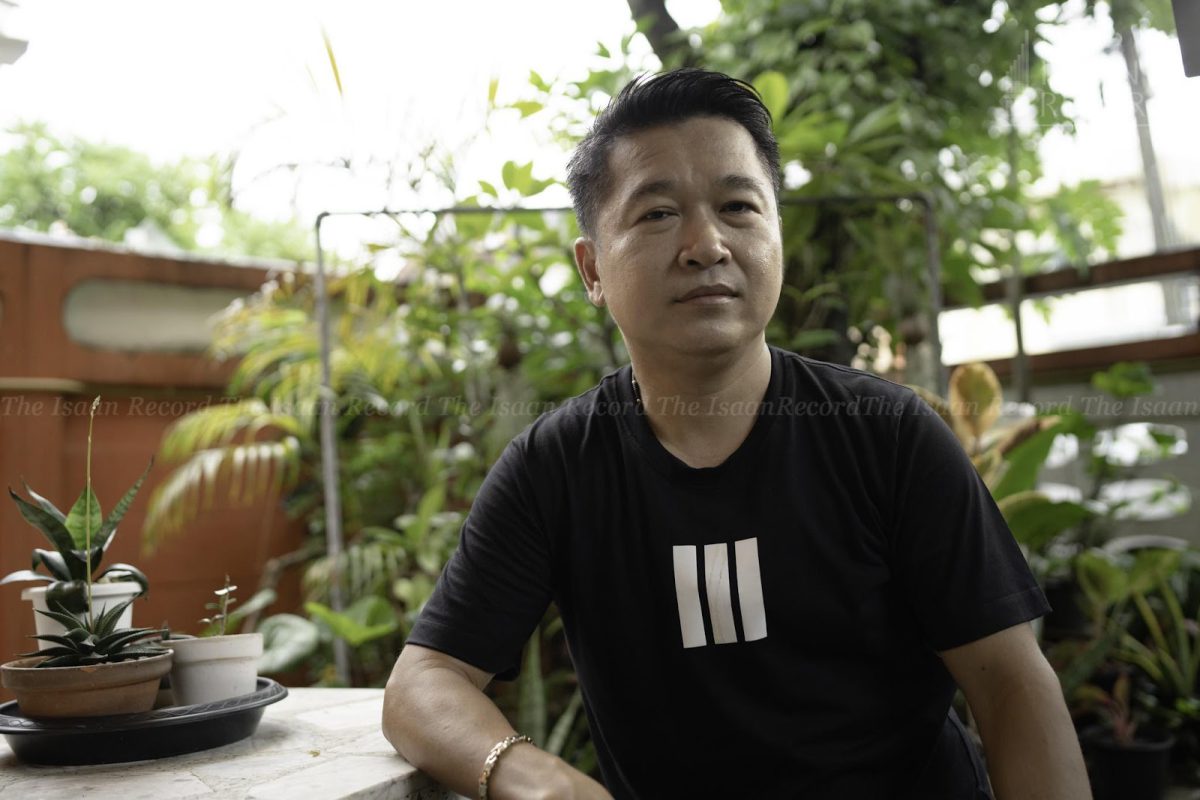
Standing amid crumbling remains of a village in Ubon Ratchathani in the aftermath of last year’s devastating flooding, the bespectacled man with long wild hair seems slightly out of place. A former leader of an independent Red Shirt group and the founder of a satirical political party, Sombat Boonngamanong is best known for innovative protests and political stunts in Bangkok.
But working to assist villagers affected by the floods in Isaan last year in October, Sombat in fact found himself returning to his roots of social activism. In his early twenties, Sombat kickstarted his career as an activist by founding a non-profit foundation to help ethnic minorities in the mountains of Chiang Rai in 1991.
He turned to political activism after the coup in 2006 and became the organizer of the most creative protests of the Red Shirt movement. After the 2014 coup, Sombat went into hiding but was soon arrested and faced an assortment of charges, including inciting unrest and violating cyber security laws.
While Sombat was in Ubon Ratchathani’s Warin Chamrap district helping provide aid to families affected by the flood, the Isaan Record’s Hathairat Paholtap met with Sombat to ask him about life after the 2014 military coup and the future of the Red Shirt movement.

Sombat Boonngamanong is the founder of The Mirror Foundation, a nonprofit organization working in the northern province of Chiang Rai. He is best known for his creative protests as a leader of the independent Red Shirt group, “Red Sunday.”
The Isaan Record (IR): Is the Red Shirt movement dead?
Sombat Boonngamanong (SB): It is as if it’d all been burnt by a wildfire. Everything had been flattened out. It’d all been scorched. But you have to wait for the rain (laughs). Whether or not it is really dead, you have to wait for the rain. If the conditions are right, we will see if the Red Shirts rise again.
It’s undeniable that since the 2014 coup, [Red Shirts] were severely hurt. It was very difficult to organize. Are [the Red Shirts] dead? Personally, I don’t think so.
IR: After the coup, you became a target for the military junta. What was the toughest measure you had to endure during that time?
SB: General Prayut [Chan-ocha, the former head of the National Council for Peace and Order] froze my bank account. When a reporter later asked him when he would lift the freeze, General Prayut replied that he did not know who I was (laughs). It made me really mad that he ordered the freezing of my account but then refused to lift it. [Ed. Sombat was able to access his funds in 2018, more than four years after the ban was imposed.]
I [also] wasn’t too happy with the whole thing of them chasing me, having the police and soldiers arrest me, putting me in custody in a military camp, and all the charges they made against me.
IR: Did you feel like your human rights had been violated?
SB: Yes, I did. I actually still do (laughs). I don’t think General Prayut should have the right to become prime minister under a democratic system.
IR: Did you ever consider filing a lawsuit for the violation of your rights?
SB: File it against whom? Who can I sue? The Human Rights Commission, or who?
No, no. I don’t think I have to file a lawsuit. I think people can figure it out for themselves. I was not the only one whose rights were violated. I think everybody understood the circumstances. Many people were in the same situation, just to different degrees.
IR: Did the military junta’s campaign against you affect your motivation for activism?
SB: Well…it was quite difficult. I have to admit that it’s difficult when there are charges against you, when your money is frozen, when you’re under constant surveillance, whether you [decide to] speak in public somewhere, or when you are at work, and the police turn up to ask you for updates and disturb you all the time. It’s been difficult, but it is also just annoying (laughs).

In the run-up to the 2019 elections, Sombat founded the satirical party Kian but the Election Commission refused to approve its registration.
IR: Most of the Red Shirts in the villages have stopped with their activism. Do you think it is because they have experienced the same kind of intimidation? What will it take to mobilize them again?
SB: Well…I think most people are waiting for the right conditions. If we come out now, we don’t know how to organize because we used to manage a much larger movement. We used to be able to do so much and still were not able to overthrow or fight [the system].
It’s been a time of reconsideration. You wouldn’t hit the wall if you weren’t convinced that you can make it collapse. But if we are not hitting the obstacle to smash it down, does that mean that we are not even trying [to overcome it]? No. In fact, at this point, we are looking for ways to crawl underneath the wall or climb over it or open the gate somewhere with a key, by changing from a undemocratic society to a democratic one.
IR: What kind of democracy do you want to see?
SB: Ultimately, I think people in Thai society will accept [democratic] rule. Although we might hold different opinions, we all act within the framework of a democratic culture or democratic principles.
This is what I want to see because I believe that if there is a social consensus and we choose to be a democracy, those in power would come to depend on the democratic system. Without it, they won’t be able to come in or stay on for long. [But] our society has yet to reach this consensus, which is a shame.
IR: How much hope do you have that this vision of the future will come true?
SB: It’s a learning process. I believe that people are able to learn but [the question is]: how long it will take them? It is surprising because we have all this experience from when the military has the opportunity to seize political power [and] our country goes backward.
[Military rule] is not the solution. I learned this lesson in 1991 but there are a number of Thais who can’t accept this lesson. We have to wait for them to learn this and accept democratic principles. When we have different opinions or when there is conflict, we will argue it out and stay within a democratic framework.
Interview by Hathairat Phaholtap. Photography by Adithep Chanthet. First published in Thai on 8 January 2020. Translated and edited by The Isaan Record.





